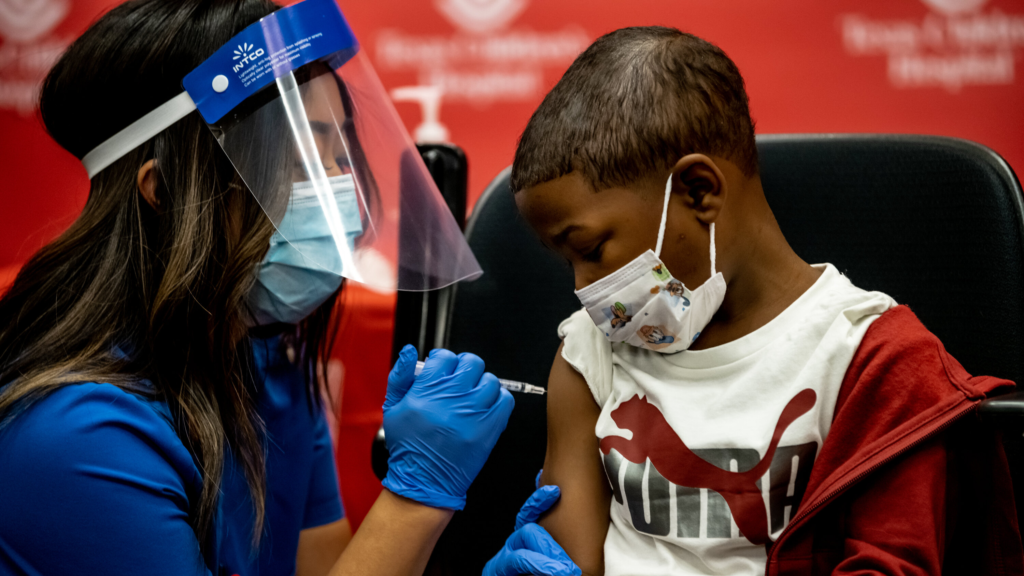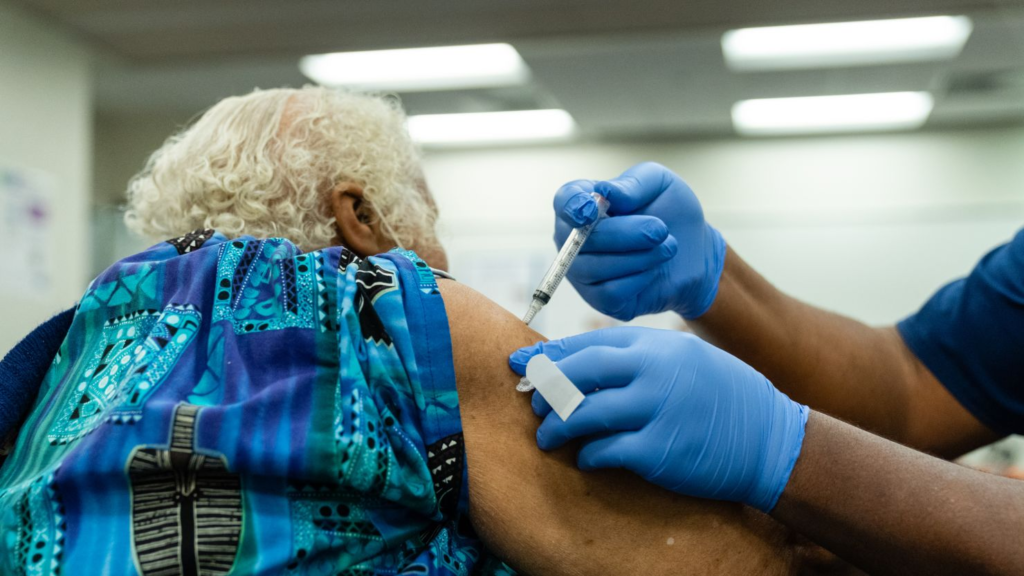CDC vaccine schedule political pressure took center stage this week during a U.S. Senate hearing where former CDC Director Susan Monarez claimed she was pressured to approve vaccine schedule changes without scientific review. Monarez, who served just 29 days, said the demands came from Health and Human Services Secretary Robert F. Kennedy Jr., and that her refusal led to her firing.
The testimony sparked serious concerns about political influence over public health institutions, raising broader questions about scientific independence, vaccine safety, and public trust.
What the former CDC director revealed
At the Senate hearing, Susan Monarez described what she said were attempts to bypass scientific review processes in making changes to vaccine schedules. According to her, she was told to pre-approve all Advisory Committee on Immunization Practices (ACIP) recommendations, regardless of whether supporting data had been reviewed.
She also claimed she was asked to fire key CDC vaccine experts—career scientists who had worked on immunization policy for years. Monarez refused, stating that public health policy must be grounded in scientific evidence, not political or ideological pressure.
Debra Houry, former CDC Chief Medical Officer, also testified. She said she resigned in protest over what she saw as growing political interference in CDC operations. According to Houry, scientific documents were being censored, internal processes ignored, and expert voices removed.

Vaccine schedules: Why they matter
Vaccine schedules guide when children and adults receive important immunizations. These schedules are carefully developed based on years of medical research, looking at how diseases spread, how the immune system works, and how best to protect people across different age groups.
For example, the hepatitis B vaccine is given to newborns within the first day of life to protect them from a virus that can cause chronic liver disease. Other vaccines, like MMR (measles, mumps, rubella), are timed to match children’s development and the risk of exposure.
Changing these schedules is not simple. It involves deep analysis, safety trials, long-term studies, and input from immunization experts. Premature or politically motivated changes could lead to confusion, reduced vaccine uptake, or even new disease outbreaks.
Reactions from public health officials and lawmakers
The hearing drew sharp reactions from across the political and medical spectrum. Several lawmakers expressed concern about the independence of the CDC and its ability to make science-based decisions. Some accused the administration of undermining the credibility of one of the country’s most important public health agencies.
Medical experts and former CDC staff raised alarms about what they saw as an unprecedented level of interference. Many warned that public trust, already shaken during the COVID-19 pandemic, could suffer lasting damage if Americans believe health decisions are being made based on politics instead of facts.
In response to the testimony, officials within the Department of Health and Human Services issued statements defending the administration’s commitment to science. However, questions remain about how much influence political leaders are exerting behind closed doors.
The risk to public trust
Public trust in health agencies is critical. When the CDC, FDA, or other institutions make recommendations, the public needs to feel confident that those guidelines are rooted in science. If people begin to believe that policies are politically motivated, the consequences can be dangerous.
Here are some key risks that experts are highlighting:
Confusion and hesitation
When vaccine guidance changes without clear scientific backing, it can cause confusion among parents, doctors, and schools. This leads to hesitation and even refusal to vaccinate, particularly in communities already wary of government intervention.
Increased health risks
Delays in vaccines or changes to the schedule without proper review can lead to outbreaks of diseases that had been under control. Measles, for example, requires high vaccination rates to maintain herd immunity. Lower rates can quickly lead to local or national outbreaks.
Damage to scientific credibility
If scientists are removed from advisory roles or pressured to change conclusions, the credibility of public health research suffers. Even evidence-based decisions might be questioned if people suspect political motives.
Polarization of health decisions
Health decisions increasingly reflect political divides. Some Americans already view vaccines through partisan lenses. Allegations like those raised by Monarez could deepen these divides, making public health work even more difficult.

What’s being changed?
One of the specific vaccine schedule changes allegedly under consideration involves the hepatitis B vaccine for newborns. Under current guidelines, infants receive this vaccine shortly after birth. According to Monarez, new proposals would delay that shot until children are older—potentially around age 4.
Other potential changes, including the timing of the MMR and chickenpox vaccines, may also be on the table, though full details have not been released. Critics say these ideas are being pushed before the science is ready and could lead to increased risks for vulnerable groups.
Rebuilding and protecting trust
The path forward, many experts say, must involve reinforcing the independence of public health institutions and maintaining transparency around vaccine decisions. Here are a few steps that could help:
Safeguard scientific processes
Vaccine schedules should continue to be developed through expert panels like ACIP, which rely on data, peer review, and public discussion. Any changes should go through standard processes.
Maintain independent voices
Career scientists, many of whom have decades of experience in immunization and disease control, should be protected from political firings. Their knowledge is essential for continuity and credibility.
Publish supporting evidence
If vaccine changes are being considered, the evidence supporting those changes should be shared publicly. The public is more likely to trust decisions when the reasoning behind them is clear and well-communicated.
Congressional oversight
While political leaders have a role in guiding national health policy, they must also respect the boundaries of science. Hearings like this one are one way to ensure that government actions remain accountable and transparent.
Final thoughts
The recent Senate hearing surrounding CDC vaccine schedule political pressure has cast a spotlight on an issue with serious implications. When the science behind vaccine policy becomes entangled with political agendas, the potential consequences extend far beyond the walls of government buildings.
At stake is the public’s confidence in the institutions designed to protect them. The path forward must include a renewed commitment to evidence-based decision-making, transparency, and trust in the expertise of scientists and public health professionals.
For now, much remains uncertain. But one thing is clear: how this situation unfolds may shape the future of vaccine policy—and public health—in the United States for years to come.
Do Follow USA Glory On Instagram
Read Next – Charlie Kirk Killing: National Reactions, Political Fallout






